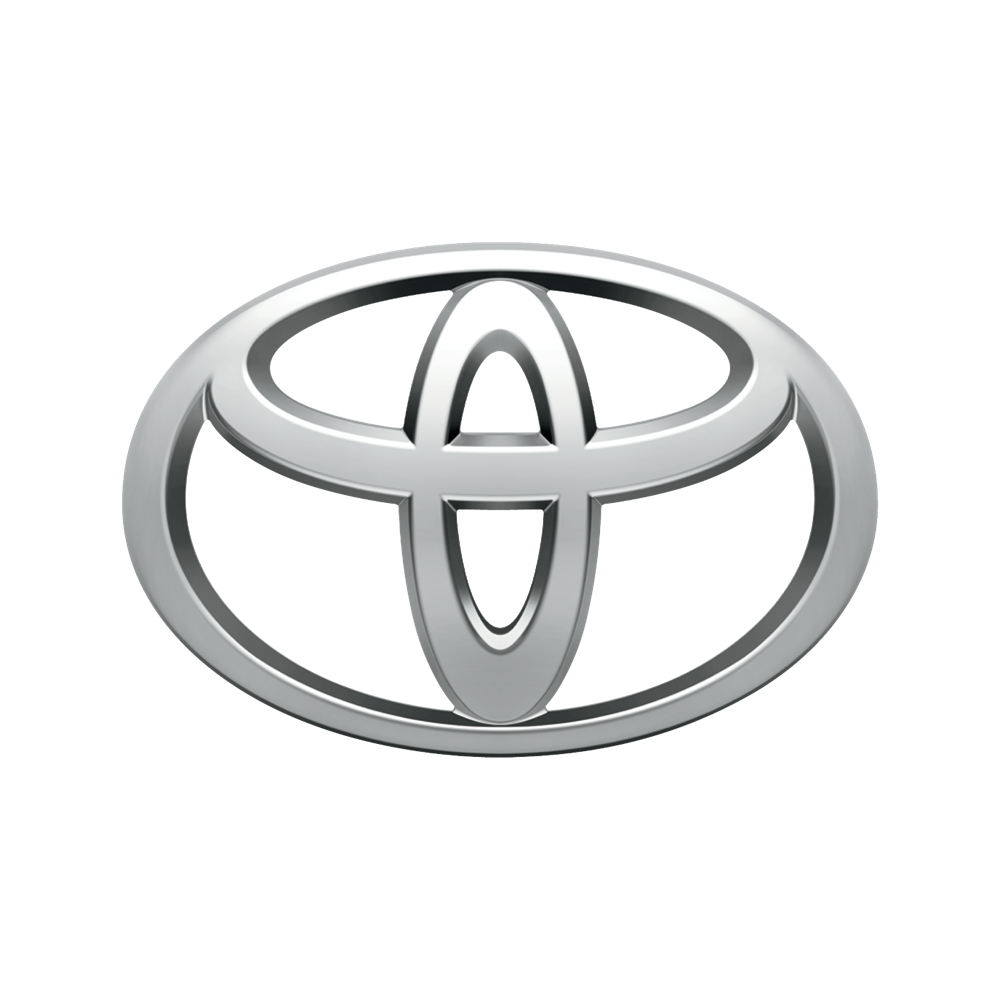
It’s generally assumed that a Lexus is more reliable than a Toyota, but is that always the case? Is it the case even nine times out of ten? Sure, as a brand it came out on top in the J.D. Power’s 2024 US Vehicle Dependability Study, with its Lexus IS also winning the Compact Premium Car class and the ES winning the Midsize Premium car class, but, if we really break it down by segment and size class, are there any areas where Toyota comes out ahead of its upscale corporate cousin?
 LexusFounded in 1989, Lexus is a premium automaker created by Toyota as a rival to Mercedes-Benz and BMW. Its first model, the Lexus LS, became renowned as a true S-Class rival at a fraction of the cost and is known as one of the most reliable cars in the world. Subsequent models from the brand have achieved equal fame, including the IS, RX, and LX. With global sales of 824,258 cars in 2023, Lexus has become a prime example of how a start-up can enter the premium space and succeed, something few rivals have managed since.Founded1989FounderEiji Toyoda, ToyotaHeadquartersNagoya, JapanOwned ByToyota Motor CorporationCurrent CEOTakashi Watanabe (President)
LexusFounded in 1989, Lexus is a premium automaker created by Toyota as a rival to Mercedes-Benz and BMW. Its first model, the Lexus LS, became renowned as a true S-Class rival at a fraction of the cost and is known as one of the most reliable cars in the world. Subsequent models from the brand have achieved equal fame, including the IS, RX, and LX. With global sales of 824,258 cars in 2023, Lexus has become a prime example of how a start-up can enter the premium space and succeed, something few rivals have managed since.Founded1989FounderEiji Toyoda, ToyotaHeadquartersNagoya, JapanOwned ByToyota Motor CorporationCurrent CEOTakashi Watanabe (President) ToyotaToyota is a Japanese automaker founded in 1937 that has developed a reputation for reliability across a multitude of segments, from sports cars and family sedans to pickup trucks and off-roaders. Famous models from the brand include the Hilux, Land Cruiser, Camry, Crown, and Corolla, the latter being the world’s best-selling vehicle nameplate, with more than 50 million Corolla-badged vehicles being sold since it was first introduced. Toyota typically competes in the mainstream market, but is also famous for launching Lexus as a luxury sub-brand to take on Mercedes-Benz.FoundedAugust 28, 1937FounderKiichiro ToyodaHeadquartersAichi, JapanOwned ByPublicly TradedCurrent CEOKoji Sato
ToyotaToyota is a Japanese automaker founded in 1937 that has developed a reputation for reliability across a multitude of segments, from sports cars and family sedans to pickup trucks and off-roaders. Famous models from the brand include the Hilux, Land Cruiser, Camry, Crown, and Corolla, the latter being the world’s best-selling vehicle nameplate, with more than 50 million Corolla-badged vehicles being sold since it was first introduced. Toyota typically competes in the mainstream market, but is also famous for launching Lexus as a luxury sub-brand to take on Mercedes-Benz.FoundedAugust 28, 1937FounderKiichiro ToyodaHeadquartersAichi, JapanOwned ByPublicly TradedCurrent CEOKoji Sato
That’s what we hope to find out today, but we want to focus not on sedans, but on the SUV market, because this is the type of vehicle most Americans buy. Here’s what we managed to turn up comparing these brands point by point.
The following comparisons have been made based on reliability ratings provided by consumer information websites. J.D. Power scores are five-year averages for the vehicle’s Quality & Reliability ratings. KBB ratings are based on consumer consensus for the most recently-reviewed version of a car.
Lexus And Toyota By The Numbers










To start out, let’s just put all the cards on the table. Below you’ll find J.D. Power ratings for all Toyota and Lexus SUVs currently being sold, as well as Kelley Blue Book user ratings. Our J.D. Power scores are based on five-year averages of each vehicle’s Quality & Reliability rating, while the KBB ratings are based on consumer consensus for the most recently-reviewed version of each respective SUV.

We’ve also listed size class and fuel type, so you can use the table for quick reference. Note that reliability ratings listed on KBB and J.D. Power are typically shared by everything under a single nameplate, so the hybrid and ICE versions of the Lexus NX, for instance, both share a 79/100 score according to J.D. Power, even though, in some instances, one version of an SUV might be marginally more dependable than the other.
| SUV | J.D. Power Q&R Rating | KBB Reliability Rating | Size Class | Fuel Type |
| Lexus UX | 83/100 | 4.6/5 | Subcompact | Hybrid |
| Lexus NX | 79/100 | 4.8/5 | Compact | ICE or Hybrid |
| Lexus RZ | N/A | 5/5 | Mid-Size | Electric |
| Lexus RX | 85/100 | 3.8/5 | Mid-Size | ICE or Hybrid |
| Lexus TX | 81/100 | 2.8/5 | Mid-Size | ICE or Hybrid |
| Lexus GX | 87/100 | 4.7/5 | Mid-Size | ICE or Hybrid |
| Lexus LX | N/A | 4.8/5 | Full-Size | ICE or Hybrid |
| Toyota Corolla Cross | 79/100 | 4.4/5 | Subcompact | ICE or Hybrid |
| Toyota RAV4 | 79/100 | 3.9/5 | Compact | ICE or Hybrid |
| Toyota Highlander | 81/100 | 4.1/5 | Mid-Size | ICE or Hybrid |
| Toyota 4Runner | 87/100 | 4.8/5 | Mid-Size | ICE or Hybrid |
| Toyota bZ4X | 64/100 | 2.3/5 | Mid-Size | Electric |
| Toyota Grand Highlander | 76/100 | 5/5 | Mid-Size | ICE or Hybrid |
| Toyota Crown Signia | N/A | N/A | Mid-Size | Hybrid |
| Toyota Land Cruiser | N/A | 5/5 | Mid-Size | Hybrid |
| Toyota Sequoia | 76/100 | 5/5 | Full-Size | Hybrid |
We don’t really need to elaborate on what these SUVs cost to maintain. Toyotas average around $441 a year to maintain, while a Lexus will run you around $551, and that generally tracks across the board, with the more premium Lexus models costing one or two hundred dollars more than their Toyota counterparts, on average.
At Least One Lexus Is Actually Cheaper To Maintain Than Its Toyota Sibling
One notable exception to the rule of luxury maintenance expense is the semi-premium Land Cruiser, which RepairPal estimates at around $843 to keep running, year after year, while the Lexus GX is estimated at $770.
Dependability By Segment And Size
We’ve got a lot of ground to cover here, so let’s just jump right in and go segment by segment, and size by size.
Toyota Produces The Most Reliable Mid-Size SUV By A Razor-Thin Margin










We recently rated the most reliable Lexus SUV overall in another article, picking the RX, despite the fact that the GX scores a slightly higher rating with J.D. Power. We went with the RX because it runs about $120 cheaper to maintain year after year than the GX. The truth is that the comparison is almost too close to call, and you could pick either one as the top dog in the Lexus camp. For Toyota, the clear winner is the 4Runner, with an 87/100 Quality & Reliability rating.
This effectively puts us in a three-way tie for both most dependable mid-size, and most dependable SUV overall, and most dependable hybrid, and that’s why we included the Kelley Blue Book ratings. The 4Runner is rated at 4.8 out of five possible points. The RX is rated at 3.8, and the GX is rated at 4.7. So, we’re going with the 4Runner as the most reliable SUV across both brands, by a nose.

The most expensive common issues in a 4Runner, according to RepairPal, include the following:
- Heater core replacement $1,000 – $1,547
- Exhaust manifold replacement $943 – $1,035
- Air conditioning refrigerant line replacement $770 – $800
Lexus Offers The Most Reliable Electric SUV










Here’s the thing about electric SUVs when it comes to Toyota and Lexus: we can’t whole-heartedly recommend either of them. J.D. Power has only given a single Q&R rating across both brand’s electric SUVs, and that was a piddly 64/100 for the bZ4X. Kelley Blue Book users give the Lexus RZ a perfect 5/5, but that’s based on just three reviews. If you insist on driving a Toyota or Lexus electric, you should probably buy the RZ, but it would seem that both are still in the early “ironing out the kinks” stages.

We don’t have sufficient maintenance data on the Lexus RZ to share here, but we did turn up a few NHTSA complaints worth knowing about:
- A driver in Los Angeles reports vehicle speed control issues in a 2023 RZ, driving through trash cans after putting the car in Park.
- A driver in Massachusetts reports heater failure in a 2024 RZ.
- A New Jersey driver reports that their 2023 RZ’s information system has been malfunctioning, displaying incorrect data.
Lexus Offers The Most Reliable Compact Or Subcompact SUV










Figuring out SUV size classes is a tricky thing these days. The Toyota Corolla Cross is sometimes listed as a compact, and sometimes listed as a subcompact. It’s the smallest Toyota SUV for the 2025 model year, and it’s considered to be the Toyota counterpart to the Lexus UX, which is usually listed as a subcompact, so we’re going with subcompact, which means that Lexus wins this round by a margin of four points, scoring an 83/100 J.D. Power rating to the Toyota’s 79/100, the same as the compact RAV4. On the other hand, the Corolla Cross and RAV4 are both available with an ICE engine, while the UX is hybrid-only, so that may sway your purchasing decision in the other direction.
Common issues in the UX include:
- Head gasket replacement $2,657 – $3,269
- A/C refrigerant line replacement $1,260 – $1,378
- Heater core replacement $1,234 – $1,441
J.D. Power Doesn’t Have A Single Rating Available For The Current Lexus LX










The Toyota Sequoia wins our full-size SUV showdown by default. The Lexus doesn’t have a single J.D. Power rating to assess, while the Sequoia boasts a solid 76/100 rating, plus 5/5 for the KBB score, to the LX’s 4.8/5. The Sequoia is a hybrid-only, where the LX is available as either hybrid or ICE, so, as with the UX, that may be a bigger concern for you than a razor-thin KBB ratings margin.

Common issues in the Sequoia include:
- HVAC air-door actuator replacement – $1,324 – $1,540
- Yaw sensor replacement $1,178 – $1,192
- Control arm replacement $760 – $962
Toyota Is, Sometimes, More Reliable Than Lexus










J.D. Power ratings are based on the frequency of mechanical failure, not the severity, and Kelley Blue Book ratings are fairly subjective, being based on a consensus of opinion. But, this is about as scientific as it gets when looking at broad trends of reliability across multiple brands and nameplates.
Maybe the biggest surprise we turned up here today is that neither Toyota nor Lexus have been proven as a potential leader in the EV sphere just yet. The bZ4X’s reliability ratings are, to put it nicely, pretty mediocre, while the new RZ hasn’t really been tested yet.

On the other hand, the emphasis on hybrids across both brands doesn’t seem to be hurting their reliability ratings any. No Lexus or Toyota hybrid scored below a rating of 76/100 with J.D. Power. The ultimate takeaway may be that Toyota can be just as dependable as Lexus, if not more so, depending on what model you buy




